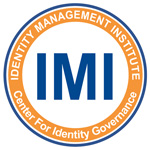Risk Management Certification
Although a risk management certification is a professional asset demonstrating one’s knowledge, experience and capability for managing specific or general business risks, a certification program can also be used to educate oneself for purely personal and self improvement purposes.
For example, while the Certified Identity and Access Manager (CIAM) designation is created for experienced professionals who understand identity and access management risks and are capable of designing and managing programs to address the identification and authentication, access management, privacy, security, and compliance needs of their organizations, the Certified Identity Protection Advisor (CIPA) training program teaches about strategies to protect against and resolve identity theft.
Depending on our personal goal whether it is to gain credibility, sell personal services, or learn new skills for purely self improvement purposes, we must constantly assess our training and certification needs for moving our personal and professional life forward and identify improvement areas. Many times, the best ways to gain credibility and become a well rounded person is to engage in related careers and gain experience in as many areas of a business as possible and seek general and specific risk management certifications to gain new skills, stay current, and gain independent validation of our knowledge and experience. One strategy which I believe is extremely powerful for gaining credibility and proving our ability to manage risks in as many areas of a business is to supplement our general certifications with more specific designations.
For example, a certified auditor, compliance officer or an information security professionals can consider becoming a Certified Red Flag Specialists (CRFS) to demonstrate that not only they are certified in their general area of expertise, but they also understand the specific federal requirements for managing or supporting a program to prevent identity theft within high risk organizations. And, a human resources certification holder can consider the Certified Identity and Access Manager (CIAM) designation as a way to demonstrate additional ability for managing employee identity risks, preventing employment fraud and validating completeness and accuracy of employment candidates' identity components.
Identity Management Institute (IMI) offers general and specific identity risk management certifications. General risk management training programs such as CIAM are designed to complement other industry certifications including human resources, audit, fraud, privacy, security and IT certifications because identity and access management processes spread across many functional groups within organizations. A CIPA designation can not only be obtained by professionals who help consumers prevent, detect and resolve identity fraud such as fraud investigators, but also by independent service providers such as professional organizers in order to offer additional value to their customers and differentiate themselves from their peers and competitors.
Specific IMI certifications such as the Certified Red Flag Specialists (CRFS) designation is a growing identity theft certification for those who help manage identity theft risks for many concerned and affected companies. Identity theft is a growing risk which requires specialization to address various aspects of identity theft prevention, detection, mitigation and compliance.
In summary, there is no shortage of risks that we have to manage whether in our personal lives or business places. A combination of general and specific risk management certifications is a great way to learn about managing as many risk areas as possible and gaining competitive advantage.
Visit Identity Management Institute for a general or specific risk management certification.






